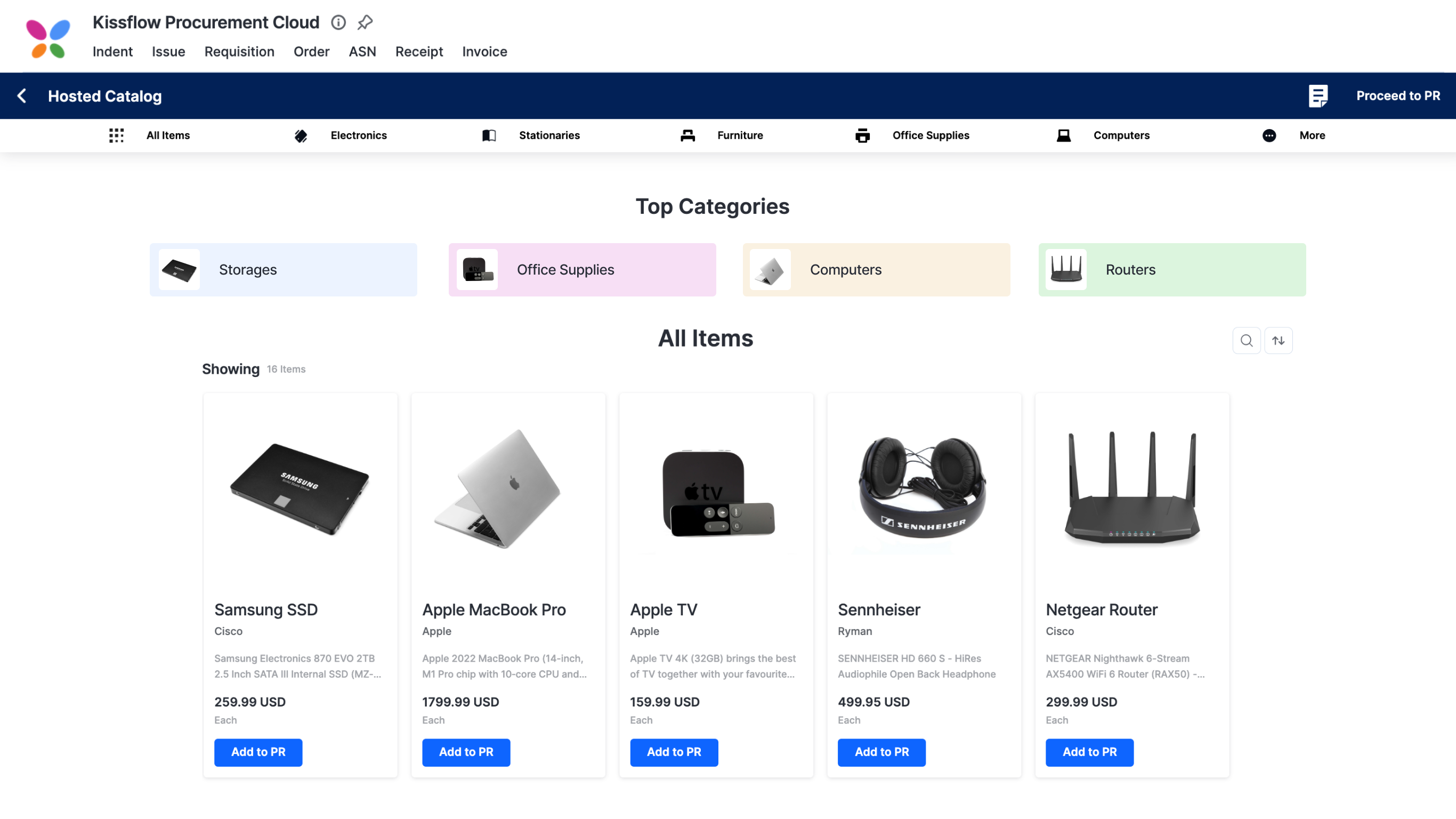Build Faster With
Kissflow's Pre-Built Low-Code Apps
Building low-code apps with Kissflow is easy and requires minimal training. The visual app-building approach empowers anyone to create simple and complex apps without needing developers. Install fully functional pre-built low-code apps to instantly automate and digitize your internal operations, streamlining your work without starting from scratch.

Check out these ready-to-go applications

Procure-to-Pay Platform for Modern Businesses
By Kissflow
The only flexible procure-to-pay platform.
Paid

Offline Forms
By Kissflow
Ensure uninterrupted data flow between Remote Users and decision-makers.
Paid
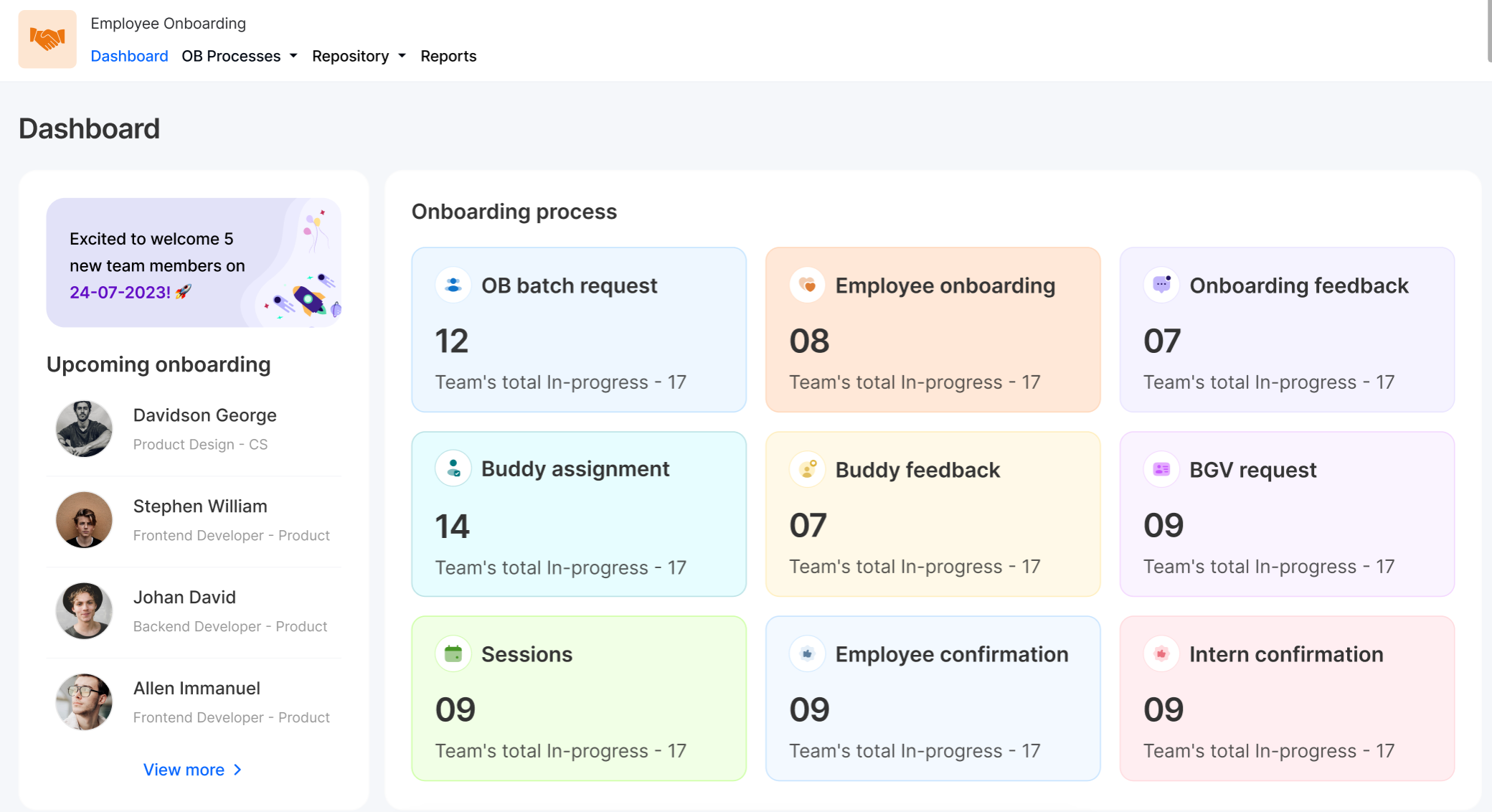
Employee Onboarding App
By Kissflow
A smooth sailing onboarding experience, not a paperwork tsunami.
Paid
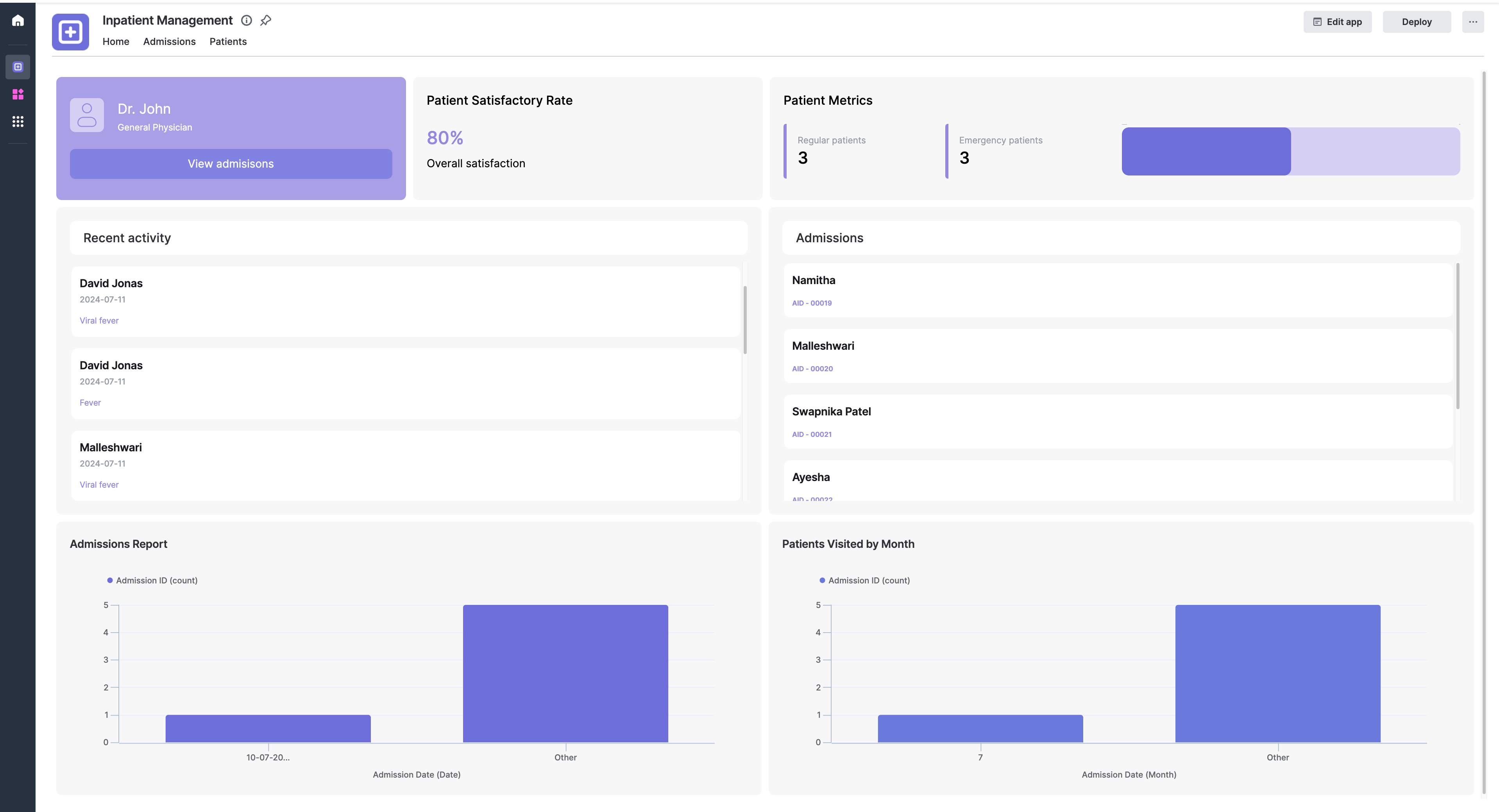
Inpatient Experience Management
By Kissflow
Optimize patient care with streamlined onboarding and data management.
Paid
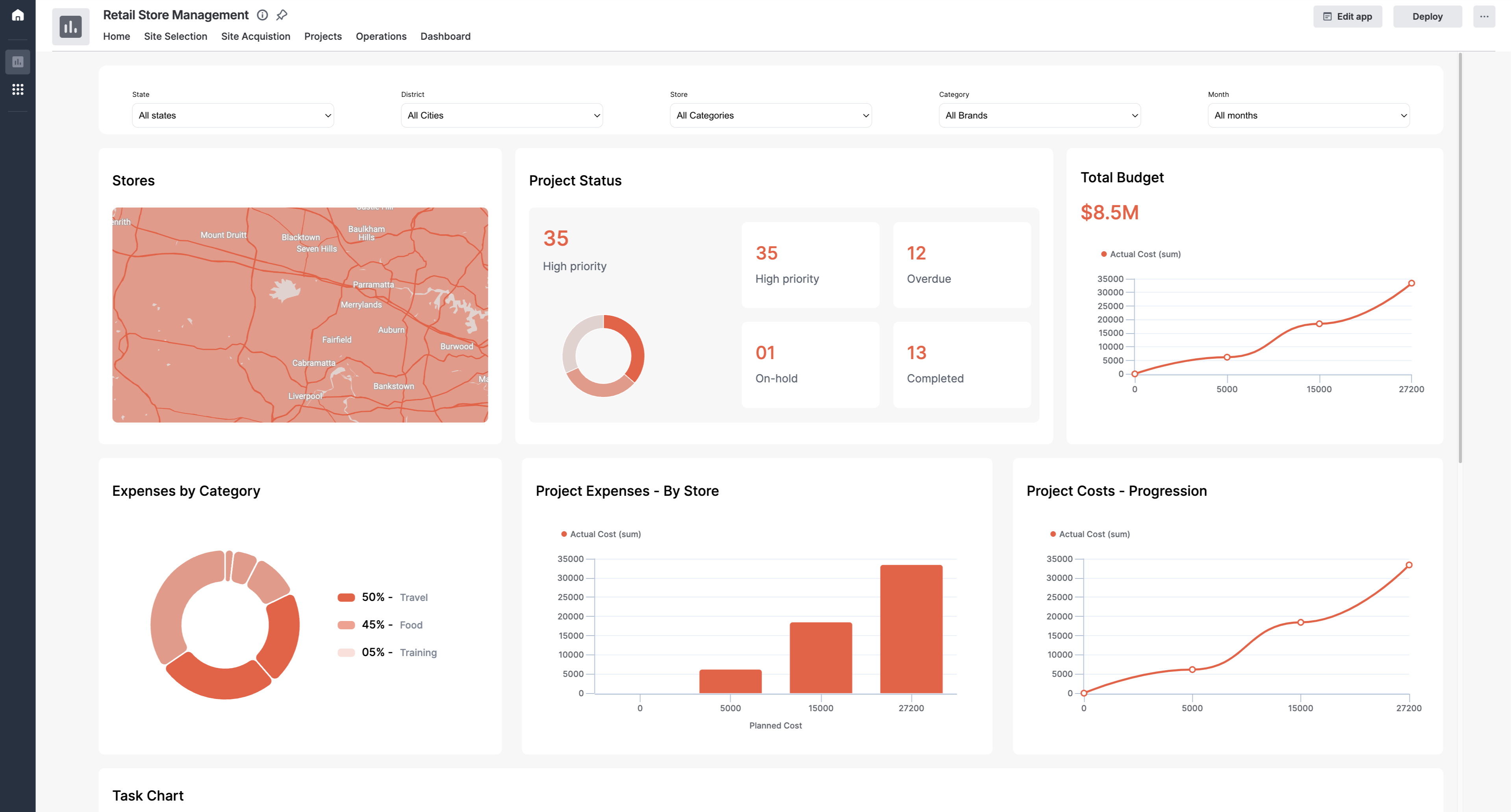
Retail Store Management
By Kissflow
Optimize site selection, budget, and management for retail store operations
Paid

Purchasing and Inventory Management App
By Kissflow
Optimize your retail operations with streamlined purchasing processes and real-time inventory control
Custom Quote

Analytics App for Retail Industry
By Kissflow
Gain deep insights into your retail operations with advanced analytics for better decision-making
Custom Quote

Warehouse Management App
By Kissflow
See our warehouse management app in action
Custom Quote

Sales Order Processing App
By Kissflow
Elevate your sales performance with intelligent order management and superior customer care.
Custom Quote

Service management app
By Kissflow
Streamline your retail operations with powerful service management tools, from field audits to maintenance SLAs
Custom Quote
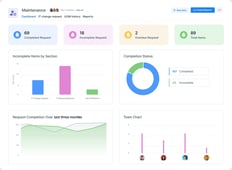
Maintenance App for Retail Industry
By Kissflow
Optimize your retail operations with comprehensive maintenance solutions for IT, transportation, and unit history management
Custom Quote
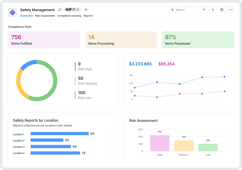
Safety Management App for Oil & Gas Industry
By Kissflow
Build a robust safety culture with a structured incident reporting and comprehensive compliance management
Custom Quote

Inventory Management App for Energy and Oil & Gas Industry
By Kissflow
Optimize your oil and gas operations with intelligent material tracking and advanced supplier coordination.
Custom Quote

Field Operations Management App
By Kissflow
Master your field operations with intelligent equipment tracking and seamless workforce coordination
Custom Quote
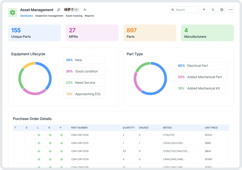
Asset Management App for Oil & Gas Industry
By Kissflow
Elevate your operational excellence with comprehensive asset lifecycle management and predictive maintenance
Custom Quote

Environmental Monitoring App
By Kissflow
Drive environmental compliance with precise emissions tracking and structured reporting systems
Custom Quote
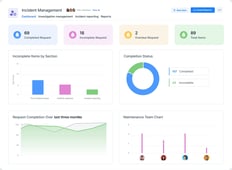
Incident Management App
By Kissflow
Strengthen operational integrity with structured incident response and systematic investigation protocols
Custom Quote

Maintenance Management App for Oil & Gas Industry
By Kissflow
Strengthen operational integrity with structured incident response and systematic investigation protocols
Custom Quote

Risk and Compliance App
By Kissflow
Master regulatory demands through data-backed risk assessment and clear audit tracking
Custom Quote

Banking Finance and Operations App
By Kissflow
Control financial processes with structured budget management and comprehensive expense tracking
Custom Quote

Corporate Banking App
By Kissflow
Enhance banking operations with precise reconciliation and structured risk management protocols
Custom Quote
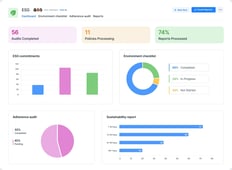
ESG App for BFSI Industry
By Kissflow
Turn sustainability commitments into measurable actions with structured ESG tracking
Custom Quote
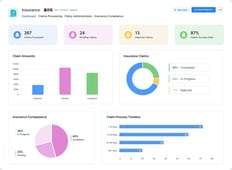
Insurance Management App
By Kissflow
Optimize insurance operations with structured claims handling and precise underwriting controls
Custom Quote

Core Banking CASA App
By Kissflow
Streamline credit card operations and account management with automated processing controls
Custom Quote

Outpatient Management App
By Kissflow
Optimize outpatient services with structured appointment systems and integrated care tracking
Custom Quote

Healthcare Maintenance App
By Kissflow
Optimize medical equipment reliability with structured maintenance workflows and compliance tracking
Custom Quote

Patient Management App
By Kissflow
Enhance patient care with structured registration workflows and comprehensive medical records management
Custom Quote

Doctor Management App
By Kissflow
Optimize medical staff operations with structured onboarding and intelligent schedule management
Custom Quote

Pharmacy Management App
By Kissflow
Optimize pharmacy operations with structured inventory control and automated stock management
Custom Quote

Lab Management App
By Kissflow
Strengthen laboratory operations with structured data management and integrated report systems
Custom Quote
.jpg)
Backlog Tracker and ROI Calculator
By Kissflow
Effectively track IT backlog processes and measure their ROI.
Free
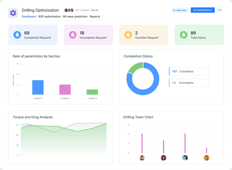
Drilling Optimization App
By Kissflow
Enhance drilling efficiency with real-time analytics and predictive tracking
Custom Quote
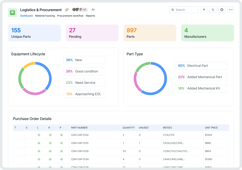
Logistics & Procurement App
By Kissflow
Facilitate material flow and procurement efficiency across energy operations
Custom Quote
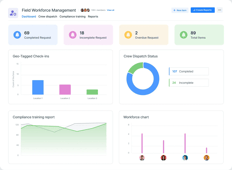
Field Workforce Management App
By Kissflow
Coordinate field teams with real-time geo-tagging and compliance tracking
Custom Quote
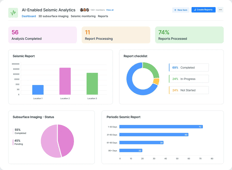
AI-Enabled Seismic Analytics App
By Kissflow
Accelerate exploration with AI-powered seismic interpretation
Custom Quote
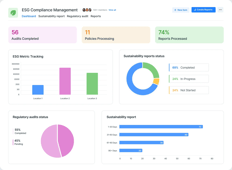
ESG Compliance Management App
By Kissflow
Strengthen ESG compliance with real-time tracking and automated reporting
Custom Quote
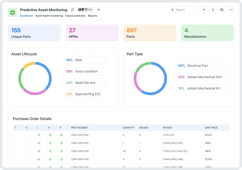
Predictive Asset Monitoring App
By Kissflow
Proactively monitor asset health and prevent equipment failures
Custom Quote
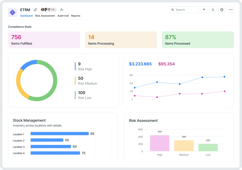
ETRM App
By Kissflow
Simplify energy trading and risk management with automated workflows
Custom Quote
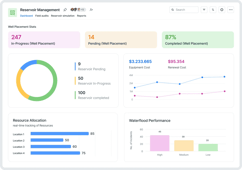
Reservoir Management App
By Kissflow
Optimize reservoir operations with simulation-driven insights
Custom Quote
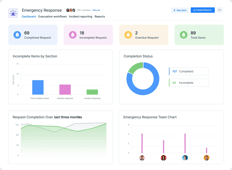
Emergency Response App
By Kissflow
Enhance incident response time with intelligent dispatch and workflow automation
Custom Quote
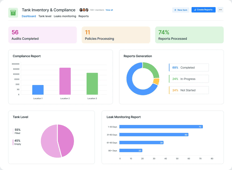
Tank Inventory & Compliance App
By Kissflow
Monitor tank levels and ensure regulatory compliance with precision
Custom Quote
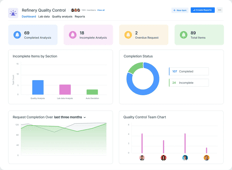
Refinery Quality Control App
By Kissflow
Ensure product quality with automated testing and deviation management
Custom Quote
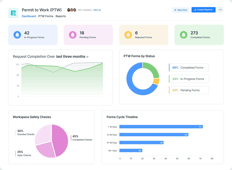
Permit to Work (PTW) App
By Kissflow
Digitize and streamline permit-to-work processes for safer field operations
Custom Quote
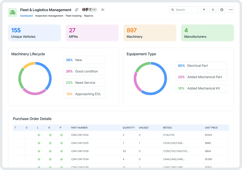
Fleet & Logistics Management App
By Kissflow
Optimize fleet operations and logistics planning with intelligent dashboards
Custom Quote
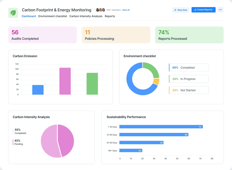
Carbon Footprint & Energy Monitoring App
By Kissflow
Track emissions and optimize energy use for sustainable operations
Custom Quote
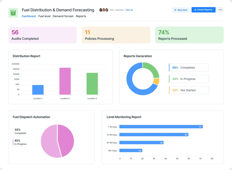
Fuel Distribution & Demand Forecasting App
By Kissflow
Optimize fuel logistics with predictive demand planning and delivery tracking
Custom Quote
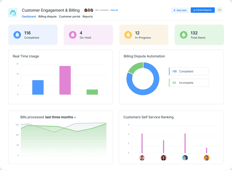
Customer Engagement & Billing App
By Kissflow
Simplify customer interactions and billing with automated portals and workflows
Custom Quote
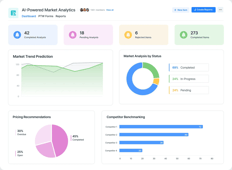
AI-Powered Market Analytics App
By Kissflow
Predict market trends and stay ahead with real-time analytics
Custom Quote
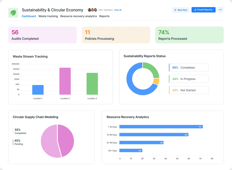
Sustainability & Circular Economy App
By Kissflow
Promote sustainable operations with waste tracking and resource recovery insights
Custom Quote
Time-Off Management
By Kissflow
Managing employee leave requests doesn't have to be a burden. Kissflow’s Time-Off Management app allows employees to easily apply for leave, check their balances, and receive automated approvals based on predefined rules. Managers and HR teams gain complete visibility into team availability and leave trends—all from a centralized platform tailored for fast-paced retail environments.
Custom Quote
Employee Availability & Preference Management — Full-Length Structured App Store Page
By Kissflow
Let your workforce drive smarter scheduling. Kissflow’s Employee Availability & Preference Management App allows employees to set their preferred work hours and days off while giving managers full visibility to build fair and balanced rosters. Say goodbye to scheduling conflicts and last-minute reassignments—this app ensures availability data is always up-to-date, empowering both teams and operations.
Custom Quote
Task Assignment with Shift — Full-Length Structured App Store Page
By Kissflow
Go beyond just scheduling shifts—assign specific responsibilities too. With Kissflow’s Task Assignment with Shift App, managers can attach job duties directly to scheduled shifts, ensuring clarity, accountability, and operational efficiency. From restocking to managing the checkout counter, every shift is now purpose-driven.
Custom Quote
Smart Shift Rostering
By Kissflow
Managing retail workforce shifts has never been easier. With Kissflow’s Smart Shift Rostering App, you can automatically create intelligent shift schedules based on real-time data, employee availability, business demand, and labor compliance. This AI-powered workforce scheduling tool eliminates the manual hassle of coordinating shifts, ensuring the right people are in the right place at the right time. Designed for high-volume retail operations, this app adapts to dynamic staffing needs and helps reduce labor costs while maintaining productivity and compliance.
Custom Quote
Compliance Check Automation — Full-Length Structured App Store Page
By Kissflow
Ensure every shift follows labor regulations with confidence. Kissflow’s Compliance Check Automation App verifies that your scheduling practices meet union rules, government regulations, and internal workforce policies. Whether it’s working hour limits, break intervals, or location-based labor laws, this app automates compliance validation and prevents violations before they occur, keeping your operations audit-ready and stress-free.
Custom Quote
Real-Time Shift Adjustments — Full-Length Structured App Store Page
By Kissflow
Adapt your workforce schedules on the fly. Kissflow’s Real-Time Shift Adjustments App empowers store managers and operations teams to instantly modify shifts based on last-minute changes—whether due to staff no-shows, emergency closures, or unexpected spikes in foot traffic. Avoid chaos and ensure business continuity with real-time scheduling flexibility, built for fast-paced retail environments.
Custom Quote
Workforce Forecasting Integration — Full-Length Structured App Store Page
By Kissflow
Match your staffing levels with actual business demand. Kissflow’s Workforce Forecasting Integration App helps retail teams align employee schedules with sales trends, footfall predictions, seasonal patterns, and promotional events. By integrating demand forecasts into your shift planning process, you ensure optimal coverage, reduce labor costs, and prevent under- or over-staffing
Custom Quote
Multi-Location Coordination — Full-Length Structured App Store Page
By Kissflow
Simplify workforce scheduling across branches, districts, and cities. Kissflow’s Multi-Location Coordination App helps large retail organizations centralize shift planning, standardize scheduling practices, and optimize staff allocation across locations. Reduce scheduling inconsistencies, avoid inter-store conflicts, and share workforce capacity seamlessly—all in one place.
Custom Quote
Vendor Onboarding Automation — Full-Length Structured App Store Page
By Kissflow
Streamline the way you register, verify, and approve vendors. Kissflow’s Vendor Onboarding Automation App eliminates manual paperwork with digitized forms, auto-verification workflows, and centralized data collection. Speed up supplier onboarding while ensuring compliance, consistency, and accountability across your procurement process.
Custom Quote
Document & Certification Management — Full-Length Structured App Store Page
By Kissflow
Stay audit-ready and fully compliant with real-time control over your supplier documentation. Kissflow’s Document & Certification Management App helps procurement and compliance teams maintain up-to-date records, track document expiry, and automate reminders for renewals—ensuring zero lapses in vendor eligibility and legal compliance.
Custom Quote
SLA Performance Monitoring — Full-Length Structured App Store Page
By Kissflow
Track vendor service levels with precision and confidence. Kissflow’s SLA Performance Monitoring App allows procurement and operations teams to measure delivery times, product quality, response times, and other vendor KPIs in real-time—helping you enforce SLAs and drive continuous performance improvement.
Custom Quote
Vendor Master Data Updates — Full-Length Structured App Store Page
By Kissflow
Keep your vendor records current, compliant, and centralized. Kissflow’s Vendor Master Data Updates App empowers procurement teams to collect, validate, and update key vendor information with full audit control—ensuring your ERP and procurement systems reflect the most accurate supplier data at all times.
Custom Quote
Vendor Performance Scorecard — Full-Length Structured App Store Page
By Kissflow
Measure what matters. Kissflow’s Vendor Performance Scorecard App helps you evaluate suppliers with a structured scoring model across quality, delivery, service, compliance, and cost metrics. Use performance data to inform renewals, de-risk operations, and foster vendor development.
Custom Quote
Breakdown & Emergency Ticketing — Full-Length Structured App Store Page
By Kissflow
Quickly respond to sudden equipment failures. Kissflow’s Breakdown & Emergency Ticketing App helps retail and facilities teams instantly log maintenance emergencies, assign technicians based on location and availability, and reduce downtime through rapid response coordination.
Custom Quote
Asset & Equipment Maintenance Logs — Full-Length Structured App Store Page
By Kissflow
Keep your equipment history organized and your maintenance records audit-ready. Kissflow’s Asset & Equipment Maintenance Logs App helps you track every repair, inspection, and service activity by asset—ensuring long-term visibility, uptime, and compliance.
Custom Quote
Spare Parts Inventory Management — Full-Length Structured App Store Page
By Kissflow
Avoid service delays caused by missing parts. Kissflow’s Spare Parts Inventory Management App helps you track the availability, usage, and restocking of critical repair items—ensuring technicians always have what they need when they need it.
Custom Quote
Maintenance Request Approvals — Full-Length Structured App Store Page
By Kissflow
Keep control over major maintenance decisions. Kissflow’s Maintenance Request Approvals App enables facility and operations teams to review and authorize high-cost or critical service tasks through structured, multi-level approval workflows.
Custom Quote
Vendor Coordination for Repairs — Full-Length Structured App Store Page
By Kissflow
Seamlessly manage third-party vendor engagements. Kissflow’s Vendor Coordination for Repairs App enables retail and facility teams to initiate service requests, track vendor SLAs, and maintain a complete log of vendor interactions—all in one unified dashboard.
Custom Quote
Store-wise Maintenance Performance Dashboard — Full-Length Structured App Store Page
By Kissflow
Gain complete visibility into your maintenance operations. Kissflow’s Store-wise Maintenance Performance Dashboard App offers real-time insights into KPIs like downtime, resolution time, request volumes, and repair costs—broken down by store, region, or asset type.
Custom Quote
Contract Lifecycle Tracking — Full-Length Structured App Store Page
By Kissflow
Never miss a renewal or deadline again. Kissflow’s Contract Lifecycle Tracking App allows procurement and legal teams to track vendor contracts from initiation through execution, renewal, and expiration. Automate alerts, monitor obligations, and maintain a centralized view of contract status across your entire supplier network
Custom Quote
Vendor Risk Assessment — Full-Length Structured App Store Page
By Kissflow
Proactively manage supplier-related risks with a centralized, data-driven tool. Kissflow’s Vendor Risk Assessment App helps you evaluate vendors across compliance, financial health, performance, and geographic risk factors—so you can make confident procurement decisions and reduce exposure.
Custom Quote
Vendor Communication Logs — Full-Length Structured App Store Page
By Kissflow
Centralize and track all interactions with your suppliers. Kissflow’s Vendor Communication Logs App gives procurement and vendor management teams a complete timeline of emails, calls, meetings, and messages—eliminating ambiguity, improving accountability, and supporting conflict resolution.
Custom Quote
Technician Dispatch Management — Full-Length Structured App Store Page
By Kissflow
Eliminate scheduling guesswork and accelerate issue resolution. Kissflow’s Technician Dispatch Management App automatically assigns the right technician for the right task based on skill set, workload, and location—maximizing service efficiency and field performance.
Custom Quote
Barcode-Based Inventory Auditing System Conducting
By Kissflow
Barcode-Based Inventory Auditing System Conducting accurate inventory audits just got faster. With our advanced barcode scanning system, you can validate item quantities and locations with precision and speed. Designed to be efficient and reliable, this inventory audit app eliminates manual counting errors and location mistakes, making it the ideal barcode audit tracking and retail warehouse inventory scanning solution for modern warehouses.
Custom Quote
Discrepancy Reporting & Reconciliation System
By Kissflow
Discrepancy Reporting & Reconciliation System Identifying inventory mismatches just got systematic. With our comprehensive discrepancy management system, you can detect differences between system records and physical counts while triggering automated resolution workflows. Designed to be thorough and efficient, this inventory discrepancy app eliminates stock variances and counting errors, making it the ideal stock variance detection and audit mismatch resolution solution for accuracy-focused warehouses.
Custom Quote
Inventory Threshold Alerts System
By Kissflow
Inventory Threshold Alerts System Managing stock levels just got proactive. With our intelligent alerting system, you can receive real-time notifications when stock levels exceed or fall below predefined thresholds. Designed to be responsive and reliable, this inventory alert app prevents stockouts and overstock situations, making it the ideal threshold-based alerting and inventory control triggers solution for proactive warehouse management.
Custom Quote
Real-Time Data Sync with ERP System
By Kissflow
Synchronizing inventory data with your ERP system just got easier. With our intuitive real-time data sync system, you can handle instant physical count updates, automated ERP reconciliation, and seamless data integration all in one place. Designed to be simple and efficient, this ERP sync app takes the hassle out of managing inventory data synchronization, making it the ideal data integration software for growing businesses.
Custom Quote
Cycle Counting Automation System
By Kissflow
Cycle Counting Automation System Automating inventory counts just got smarter. With our intelligent cycle counting system, you can schedule and execute periodic counts by SKU, location, or department automatically. Designed to be systematic and efficient, this automated cycle counting app eliminates manual scheduling errors and missed counts, making it the ideal scheduled inventory counts and SKU-level audit planning solution for continuous inventory management.
Custom Quote
Multi-Location Stock Verification System
By Kissflow
Managing stock verification across multiple warehouse locations just got easier. With our intuitive multi-location stock verification system, you can handle cross-location audits, centralized coordination, and regional reporting all in one place. Designed to be simple and efficient, this stock verification app takes the hassle out of managing multi-site inventory audits, making it the ideal audit coordination software for growing businesses.
Custom Quote
Affiliate Lead Tracking System
By Kissflow
Transform your affiliate marketing with comprehensive lead tracking across campaigns. Our sophisticated affiliate lead tracking system enables you to monitor affiliate-generated leads with precision, including detailed source attribution and conversion tracking. Designed for D2C brands and affiliate marketers, this lead tracking for affiliate marketing solution provides conversion attribution tools that deliver actionable insights for campaign optimization
Custom Quote
Payout & Commission Automation System
By Kissflow
Revolutionize your affiliate earnings management with intelligent commission automation. Our comprehensive payout and commission system automates commission calculations and payouts based on pre-defined rules and thresholds, ensuring accurate and timely affiliate compensation. Built specifically for automated affiliate commission systems, this solution delivers seamless affiliate earnings automation with robust commission payout tracking and auto payout processing capabilities.
Custom Quote
Influencer Approval Workflow System
By Kissflow
Streamline your influencer partnerships with comprehensive approval workflows. Our sophisticated influencer approval workflow system manages influencer vetting and approval processes with pre-built templates and automated notifications, ensuring compliance and quality control. Designed as a complete influencer onboarding workflow tool, this solution provides influencer validation steps and KYC for affiliates, delivering robust influencer approval workflows that maintain program integrity.
Custom Quote
Affiliate Tier & Bonus Management System
By Kissflow
Maximize affiliate performance with intelligent tier-based rewards and incentives. Our comprehensive affiliate tier and bonus management system sets tier-based rewards and bonuses to motivate high-performing affiliates, creating sustainable growth through strategic incentivization. Built as a complete affiliate tier rewards platform, this solution delivers multi-level affiliate incentives and top-performer bonuses with seasonal affiliate bonuses and loyalty program tracking capabilities.
Custom Quote
Fraud Detection & Validation System
By Kissflow
Protect your affiliate programs with intelligent fraud detection and prevention. Our comprehensive fraud detection and validation system detects click fraud, fake leads, and enforces policy compliance, ensuring program integrity and ROI protection. Built as a complete affiliate fraud detection software, this solution provides fraud prevention in affiliate marketing with invalid lead flags and anomaly detection in leads, delivering robust integrity scoring capabilities.
Custom Quote
Performance Analytics Dashboard System
By Kissflow
Transform your affiliate marketing insights with comprehensive performance analytics. Our advanced performance analytics dashboard visualizes affiliate performance with key metrics like CTR, conversion rates, and ROI, delivering actionable intelligence for program optimization. Built as a complete affiliate performance tracking dashboard, this solution provides affiliate ROI dashboard capabilities and marketing campaign metrics with real-time stats for affiliates and performance heatmaps.
Custom Quote
Affiliate Communication Portal System
By Kissflow
Transform your affiliate relationships with centralized communication and resource management. Our comprehensive affiliate communication portal enables centralized messaging and resource sharing for affiliates, creating seamless collaboration and support experiences. Built as a complete affiliate communication and support portal, this solution provides affiliate newsletter modules and campaign resource hubs with centralized affiliate hub capabilities and support message center functionality.
Custom Quote
Referral Code & Link Generation System
By Kissflow
Accelerate your referral marketing with intelligent code and link generation. Our comprehensive referral code and link generation system auto-generates referral links and coupon codes with built-in tracking capabilities, ensuring seamless attribution and conversion monitoring. Designed as a complete automated referral link generator, this solution provides trackable referral codes and affiliate coupon system functionality with UTM-based links and shareable campaign codes.
Custom Quote
Customer Feedback Management
By Kissflow
Automatically classify reviews as positive, neutral, or negative using AI sentiment analysis. Managing customer feedback sentiment just got easier. With our intuitive review sentiment classification system, you can handle sentiment analysis, opinion classification, and feedback tagging all in one place. Designed to be simple and efficient, this AI-powered review filter takes the hassle out of analyzing customer opinions, making it the ideal sentiment classification tool for growing businesses.
Custom Quote
Feedback Routing to Support Teams
By Kissflow
Our support case creation system makes it easy for customer concerns to reach the right teams automatically and for managers to track resolution progress, while the built-in issue flagging tool keeps everything organized and prioritized.
Custom Quote
Automated Thank-You Responses
By Kissflow
Trigger automated thank-you messages for positive reviews across marketplaces or platforms.
Custom Quote
Negative Feedback Escalation Workflow
By Kissflow
Escalate unresolved or repeat negative feedback through defined workflows to ensure resolution.
Custom Quote
Customer Satisfaction Scoring System
By Kissflow
Measure customer happiness smarter with our intelligent scoring system. It transforms reviews and survey data into actionable insights, delivering accurate CSAT calculations to drive data-driven business growth.
Custom Quote
Multi-Channel Feedback Aggregation System
By Kissflow
Multi-Channel Feedback Aggregation System Centralizing customer feedback just got seamless. With our comprehensive feedback aggregation system, you can collect and unify feedback from email, chat, review platforms, and surveys all in one place. Designed to be unified and efficient, this multi-channel feedback app eliminates data silos and fragmentation, making it the ideal central feedback repository for omnichannel businesses.
Custom Quote
Feedback Analytics & Reporting System
By Kissflow
An advanced Feedback Analytics & Reporting System that transforms raw customer feedback into actionable insights through visual dashboards and filterable reports for data-driven organizations.
Custom Quote
Response Time SLA Monitoring System
By Kissflow
A Response Time SLA Monitoring System helps track and ensure timely customer responses, improving service quality and preventing delays for service-focused organizations.
Custom Quote
Subscription Trend Forecasting
By Kissflow
Stay ahead of demand with intelligent subscription forecasting. Our advanced trend forecasting system analyzes historical subscription data to predict upcoming inventory requirements accurately, ensuring you're always prepared for subscriber growth and seasonal patterns.
Custom Quote
Automated Inventory Replenishment
By Kissflow
Never run out of stock again with intelligent auto-replenishment. Our automated inventory replenishment system predicts future subscription needs and automatically reorders stock, ensuring seamless fulfillment for your recurring orders without manual intervention.
Custom Quote
SKU-Level Subscription Demand Analysis
By Kissflow
Optimize inventory at the product level with granular demand insights. Our SKU-level subscription demand analysis system monitors item-specific trends and subscriber behavior to optimize inventory holding for each individual product in your subscription catalog.
Custom Quote
Inventory Buffer & Threshold Management
By Kissflow
Maintain perfect stock balance with intelligent buffer management. Our inventory buffer and threshold management system sets optimal buffer stock levels and delivers timely alerts for understock and overstock scenarios, ensuring seamless subscription fulfillment.
Custom Quote
Multi-Cycle Subscription Planning
By Kissflow
Plan ahead with comprehensive multi-cycle inventory management. Our multi-cycle subscription planning system manages inventory across multiple future billing cycles, preventing service disruption and optimizing stock levels for long-term subscription success.
Custom Quote
Supplier Order Sync
By Kissflow
Streamline procurement with intelligent supplier coordination. Our supplier order sync system synchronizes inventory planning with vendor order timelines, ensuring smooth restocking and optimal coordination between your subscription needs and supplier capabilities.
Custom Quote
Real-Time Stock Visibility for Subscribers System
By Kissflow
Managing subscriber stock visibility just got easier. With our intuitive real-time stock visibility system, you can provide live inventory updates, customer-facing dashboards, and subscription item availability all in one place. Designed to be simple and efficient, this stock visibility app takes the hassle out of managing subscriber inventory access, making it the ideal customer portal software for growing subscription businesses.
Custom Quote
Inventory vs. Subscription Variance Reporting System
By Kissflow
Managing inventory variance analysis just got easier. With our comprehensive variance reporting system, you can compare forecasted vs. actual consumption, track cycle variances, and monitor forecast deviations all in one place. Designed to be simple and efficient, this variance reporting app takes the hassle out of managing inventory analysis, making it the ideal forecasting software for growing subscription businesses.
Custom Quote
Point-Based Rewards Tracking System
By Kissflow
Managing point-based rewards tracking just got easier. With our intuitive loyalty management app for unified commerce retailers, you can track earned, redeemed, and expired points across in-store and online purchases, provide real-time rewards ledger, and omnichannel purchase history all in one place. Designed to be simple and efficient, this point-based rewards tracking app takes the hassle out of managing loyalty balance updates, making it the ideal track loyalty points across channels software for growing retail businesses.
Custom Quote
Tiered Loyalty Program Management System
By Kissflow
Managing tiered loyalty programs just got easier. With our intuitive tiered loyalty program software, you can manage customer tiers (Silver, Gold, Platinum) and their respective benefits dynamically, provide multichannel rewards management, and VIP loyalty benefits system all in one place. Designed to be simple and efficient, this tiered loyalty program management app takes the hassle out of managing loyalty tier upgrades, making it the ideal status-based incentives software for growing businesses.
Custom Quote
Milestone-Based Reward Triggers System
By Kissflow
Managing milestone-based rewards just got easier. With our intuitive milestone reward automation platform, you can automatically send reward messages when customers hit spending or engagement milestones, provide milestone-based customer engagement, and reward automation engine all in one place. Designed to be simple and efficient, this milestone-based reward triggers app takes the hassle out of managing spend milestone tracking, making it the ideal engagement achievement alerts software for growing businesses.
Custom Quote
CRM-Integrated Customer Profiling System
By Kissflow
Managing CRM-integrated loyalty profiling just got easier. With our intuitive CRM integrated loyalty platform, you can sync loyalty data with CRM profiles for personalized communication and rewards, provide loyalty CRM profiles, and unified customer view all in one place. Designed to be simple and efficient, this CRM-integrated customer profiling app takes the hassle out of managing CRM-triggered loyalty offers, making it the ideal behavior-based rewards software for growing businesses.
Custom Quote
Cross-Platform Loyalty Tracking
By Kissflow
Ensure loyalty status and activity are consistent across web, mobile, and your omnichannel loyalty program. Kissflow’s Cross-Platform Loyalty Tracking App integrates data from all customer touchpoints, delivering a seamless and unified experience that drives engagement and repeat business.
Custom Quote
Reward Redemption Automation
By Kissflow
Take the manual effort out of reward redemptions. Kissflow’s Reward Redemption Automation App empowers retail businesses to digitize, validate, and manage reward usage at scale—eliminating delays and improving the loyalty experience for every customer.
Custom Quote
Customer Retention Analytics
By Kissflow
Understand what drives loyalty—and what causes churn. Kissflow’s Customer Retention Analytics App helps retailers gain actionable insights into loyalty program effectiveness, member retention trends, and churn risk. Use data to predict behavior, improve engagement, and drive long-term customer value.
Custom Quote
Birthday & Anniversary Campaigns
By Kissflow
Build lasting relationships by recognizing your customers’ special days. Kissflow’s Birthday & Anniversary Campaigns App helps retail teams deliver personalized offers and heartfelt messages that strengthen loyalty and drive engagement—all with zero manual effort.
Custom Quote
Creative Asset Submission
By Kissflow
Kissflow’s Creative Asset Submission App provides marketing teams with a centralized portal to upload campaign assets—ensuring every banner, video, email, or file is collected in one place, consistently tagged, and review-ready.
Custom Quote
Multi-Level Approval Workflows
By Kissflow
Kissflow’s Multi-Level Approval Workflows App allows marketing teams to route creative assets and campaigns through tailored approval chains—based on team roles, brand regions, content types, or compliance tiers. Eliminate confusion and delays with rule-based review flows.
Custom Quote
Stakeholder Commenting & Feedback
By Kissflow
Kissflow’s Stakeholder Commenting & Feedback App provides an integrated space for collaborators to leave input, suggestions, and approvals directly on creative assets—eliminating scattered emails and unclear instructions.
Custom Quote
Deadline-Based Approval Reminders
By Kissflow
Kissflow’s Deadline-Based Approval Reminders App automates timely notifications for every reviewer involved in campaign workflows. Ensure no step stalls, no stakeholder forgets, and every deadline is met—without manual follow-ups.
Custom Quote
Approval Status Tracking
By Kissflow
Kissflow’s Approval Status Tracking App provides a visual, up-to-the-minute dashboard showing the exact stage of every campaign asset. Know what’s approved, what’s pending, and what’s delayed—without digging through emails or spreadsheets.
Custom Quote
Version Control for Campaign Assets
By Kissflow
Kissflow’s Version Control for Campaign Assets App helps marketing and creative teams manage changes across file versions, ensuring every iteration is tracked, reviewed, and recoverable. No more mix-ups, duplicate files, or missing edits.
Custom Quote
Final Publishing & Distribution Trigger
By Kissflow
Kissflow’s Final Publishing & Distribution Trigger App lets marketing teams automatically push campaign-ready assets to CMS, email platforms, and social channels right after final sign-off—eliminating manual publishing delays and errors.
Custom Quote
Audit Trail for Compliance
By Kissflow
Kissflow’s Audit Trail for Compliance App records every action, comment, and approval decision made during your campaign workflow. Maintain a complete, time-stamped log of who did what and when, for legal, brand, and internal audits.
Custom Quote
Seasonal Display Task Assignment
By Kissflow
Kissflow’s Seasonal Display Task Assignment App helps retail teams coordinate store-level merchandising tasks aligned to seasonal promotions, product launches, and campaign calendars. Assign visual setup responsibilities clearly and ensure timely execution across all store locations.
Custom Quote
Planogram Compliance Tracking
By Kissflow
Kissflow’s Planogram Compliance Tracking App helps retail teams verify whether in-store displays match approved layouts and visual merchandising plans. Identify gaps, correct deviations, and ensure visual consistency across locations.
Custom Quote
Merchandising Calendar Scheduling
By Kissflow
Kissflow’s Merchandising Calendar Scheduling App helps VM teams align promotional timelines, display refreshes, and seasonal rollouts across all retail locations—using a centralized, interactive calendar that’s built for execution, not just planning.
Custom Quote
Real-Time Display Status Dashboard
By Kissflow
Kissflow’s Real-Time Display Status Dashboard App gives merchandising and retail ops teams a live overview of display setup progress—track which stores are ready, pending, delayed, or non-compliant with just one glance.
Custom Quote
Credit Scoring Engine
By Kissflow
Kissflow’s Credit Scoring Engine helps finance and credit ops teams calculate dynamic credit scores using financial ratios, payment behavior, risk categories, and bureau data—so credit approvals are data-driven and consistent across the board.
Custom Quote
Risk-Based Approval Routing
By Kissflow
Kissflow’s Risk-Based Approval Routing App helps finance teams direct credit applications to the right approvers—automatically—based on customer risk profiles, score thresholds, or application type. No more one-size-fits-all reviews.
Custom Quote
Multi-Level Approval Workflow
By Kissflow
Kissflow’s Multi-Level Approval Workflow App allows finance and credit teams to create tiered, rule-based approval hierarchies for customer credit requests—ensuring the right people review high-value or high-risk decisions, and no step is missed.
Custom Quote
Credit Limit Management
By Kissflow
Kissflow’s Credit Limit Management App helps credit and finance teams define, approve, and monitor customer credit limits—backed by real-time data and customizable rules. Ensure limits reflect risk, compliance, and evolving customer behavior.
Custom Quote
Compliance & Document Verification
By Kissflow
Kissflow’s Compliance & Document Verification App automates the collection, validation, and approval of all required credit-related documents. Ensure customers meet internal and external compliance standards without chasing paperwork.
Custom Quote
Approval SLA Monitoring
By Kissflow
Kissflow’s Approval SLA Monitoring App helps credit operations and finance leaders track how long approvals take, enforce SLA timelines, and trigger escalations if tasks are delayed—ensuring on-time decisions for every credit request.
Custom Quote
Audit Trail & Approval History Logs
By Kissflow
Kissflow’s Audit Trail & Approval History Logs App records every action taken during the credit approval lifecycle—from submission to final sign-off—ensuring traceability, compliance, and accountability for credit decisions.
Custom Quote
Store-Specific Visual Guidelines Distribution
By Kissflow
Kissflow’s Store-Specific Visual Guidelines Distribution App helps retail visual merchandising teams deliver targeted display instructions based on each store’s layout, format, and product assortment—ensuring consistent brand presentation with local relevance.
Custom Quote
Photo Upload & Verification
By Kissflow
Kissflow’s Photo Upload & Verification App allows store teams to upload real-time images of their display setups, while central VM or audit teams review them for accuracy, compliance, and visual standards—all in one place.
Custom Quote
Workforce Scheduling App
By Kissflow
Optimize shift planning and ensure labor compliance with smart automation. Kissflow’s Workforce Scheduling App helps retail operations create fair shift rosters, manage time-off requests, enforce compliance rules, and adapt in real-time—all from one low-code platform.
Custom Quote
Vendor Management App
By Kissflow
Manage your entire vendor lifecycle—from onboarding to performance monitoring—with automation and ease. Kissflow’s Vendor Management App centralizes vendor data, tracks compliance, and ensures vendors meet your service standards—all from one low-code platform.
Custom Quote
Facility Maintenance App
By Kissflow
Keep your retail operations running smoothly with automated maintenance task assignment and real-time technician dispatch. Kissflow’s Facility Maintenance App ensures timely issue resolution, preventive upkeep, and complete visibility across all store locations.
Custom Quote
Inventory Audit App
By Kissflow
Conduct barcode-driven inventory audits with speed and accuracy. Kissflow’s Inventory Audit App helps retail and warehouse teams validate stock levels, track discrepancies, and maintain audit readiness—powered by automation and low-code customization.
Custom Quote
Affiliate Management App
By Kissflow
Manage affiliate partners, track performance, and automate payouts—all from one central hub. Kissflow’s Affiliate Management App simplifies influencer onboarding, referral tracking, and commission management through low-code automation.
Custom Quote
Customer Feedback Workflow App
By Kissflow
Transform customer reviews into actionable insights. Kissflow’s Customer Feedback Workflow App automates sentiment analysis, routes negative feedback to support, and thanks happy customers—helping teams respond faster and build better experiences.
Custom Quote
Subscription Inventory Planner App
By Kissflow
Never miss a shipment. Kissflow’s Subscription Inventory Planner App forecasts recurring demand, automates inventory replenishment, and synchronizes supplier orders—ensuring you're always stocked for your subscribers.
Custom Quote
Loyalty Management App
By Kissflow
Reward loyal customers and strengthen retention with personalized, milestone-driven experiences. Kissflow’s Loyalty Management App automates reward tracking, syncs with your CRM, and keeps customers engaged across all channels.
Custom Quote
Campaign Approval App
By Kissflow
Accelerate creative campaign approvals with structured workflows and real-time collaboration. Kissflow’s Campaign Approval App routes assets for multi-level review, captures feedback, and triggers final publishing—ensuring faster go-lives without the chaos.
Custom Quote
Visual Merchandising Planner App
By Kissflow
Ensure brand consistency across stores with smart task assignments and display compliance tracking. Kissflow’s Visual Merchandising Planner App lets teams assign display tasks, upload photos, and monitor planogram adherence in real time.
Custom Quote
Credit Approval Workflow App
By Kissflow
Accelerate credit decisions with automation and intelligence. Kissflow’s Credit Approval Workflow App pulls applicant credit data, calculates scores, and routes requests through multi-level approvals—all while maintaining compliance and audit readiness.
Custom Quote
Contract Lifecycle Management App
By Kissflow
Streamline every stage of your contract lifecycle—from drafting to renewals—with automation and transparency. Kissflow’s Contract Lifecycle Management App helps teams manage versions, monitor clauses, and ensure audit readiness through low-code workflows.
Custom Quote
Contract Creation and Template Management
By Kissflow
Kissflow’s Contract Creation and Template Management App lets legal, procurement, and operations teams generate contracts quickly using standardized, customizable templates. Accelerate contract cycles and reduce legal risk with structured content control.
Custom Quote
Version Control and Change Tracking
By Kissflow
Kissflow’s Version Control and Change Tracking App enables legal, procurement, and operations teams to manage contract revisions across departments. Maintain a clear record of redlines, approvals, and historical versions—without confusion or duplication.
Custom Quote
Contract Expiry and Renewal Alerts
By Kissflow
Kissflow’s Contract Expiry and Renewal Alerts App helps legal, procurement, and vendor management teams stay ahead of expiration dates, renewal windows, and renegotiation periods with smart notifications and tracking.
Custom Quote
Approval Workflow Automation
By Kissflow
Kissflow’s Approval Workflow Automation App enables teams to define contract approval flows tailored to vendor type, contract value, or department—ensuring every document is reviewed, signed, and logged with full transparency.
Custom Quote
Centralized Contract Repository
By Kissflow
Kissflow’s Centralized Contract Repository App gives teams a secure, searchable, and structured place to store all contracts—by vendor, department, date, or region. Say goodbye to siloed folders and scattered storage.
Custom Quote
Audit Trail and Compliance Logging
By Kissflow
Kissflow’s Audit Trail and Compliance Logging App records every activity in the contract lifecycle—from drafts and reviews to approvals, version uploads, and downloads—ensuring complete transparency and legal compliance.
Custom Quote
Vendor-Specific Contract Dashboards
By Kissflow
Kissflow’s Vendor-Specific Contract Dashboards App allows procurement and legal teams to visualize contract status, renewal timelines, compliance gaps, and financial exposure—organized vendor by vendor.
Custom Quote
Performance Clause Monitoring
By Kissflow
Kissflow’s Performance Clause Monitoring App ensures that contract deliverables, service-level agreements (SLAs), and milestone-based commitments are tracked, reviewed, and escalated—automatically.
Custom Quote
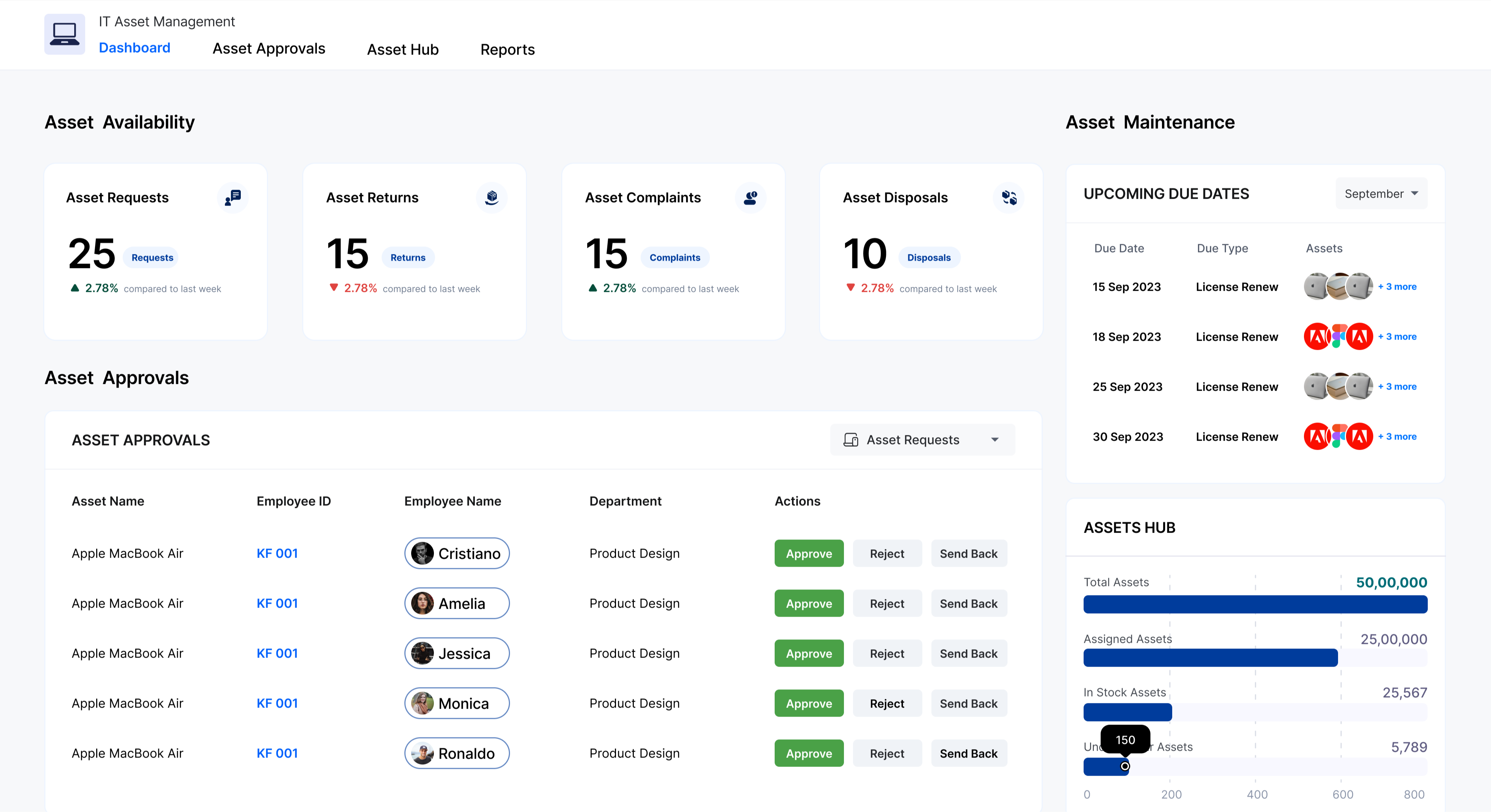
IT Asset Management System
By Kissflow
Monitor IT assets and streamline their management with this app.
Paid
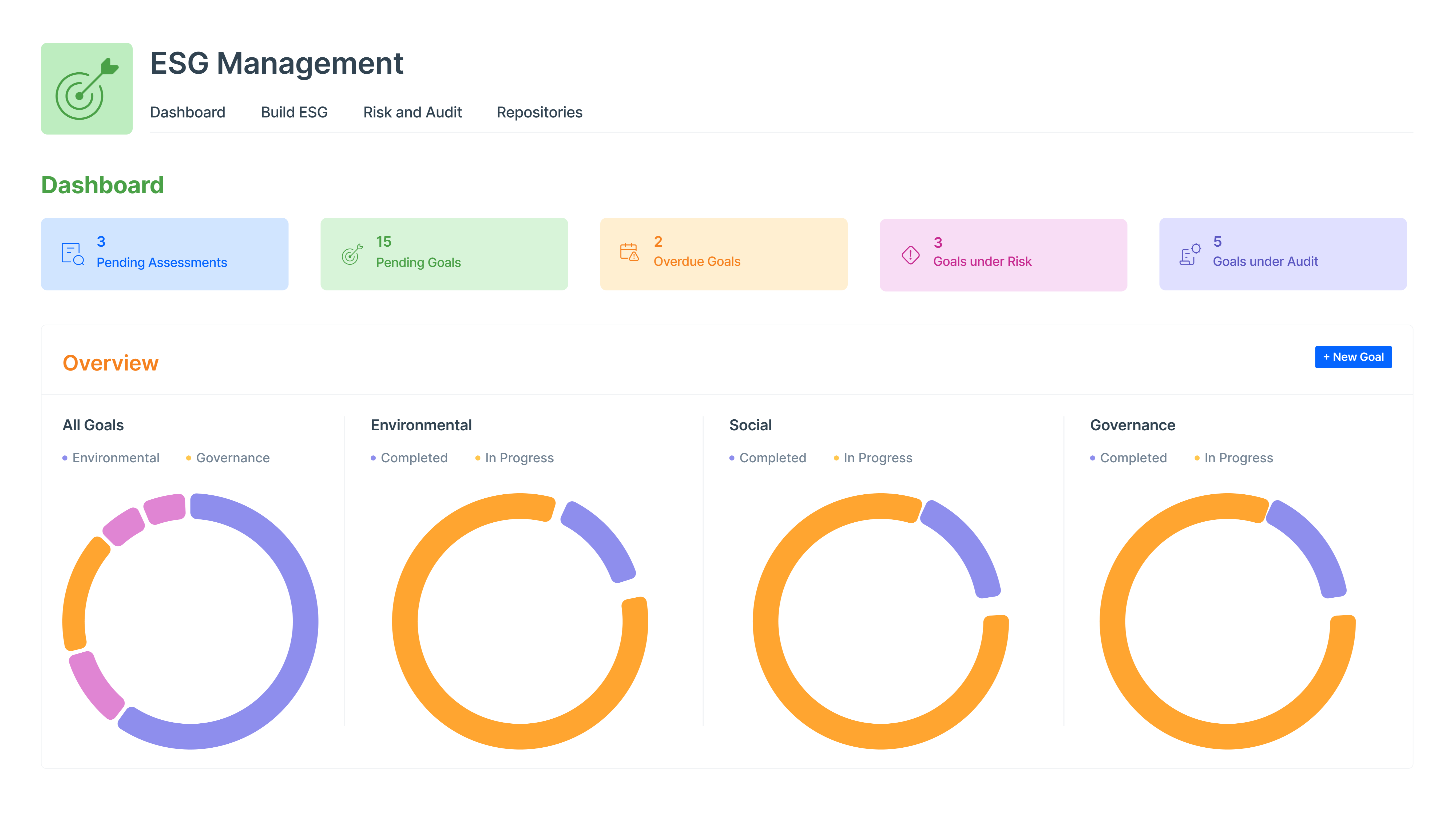
ESG Operation Management
By Kissflow
Framework to evaluate a company's sustainability and ethical impact
Paid
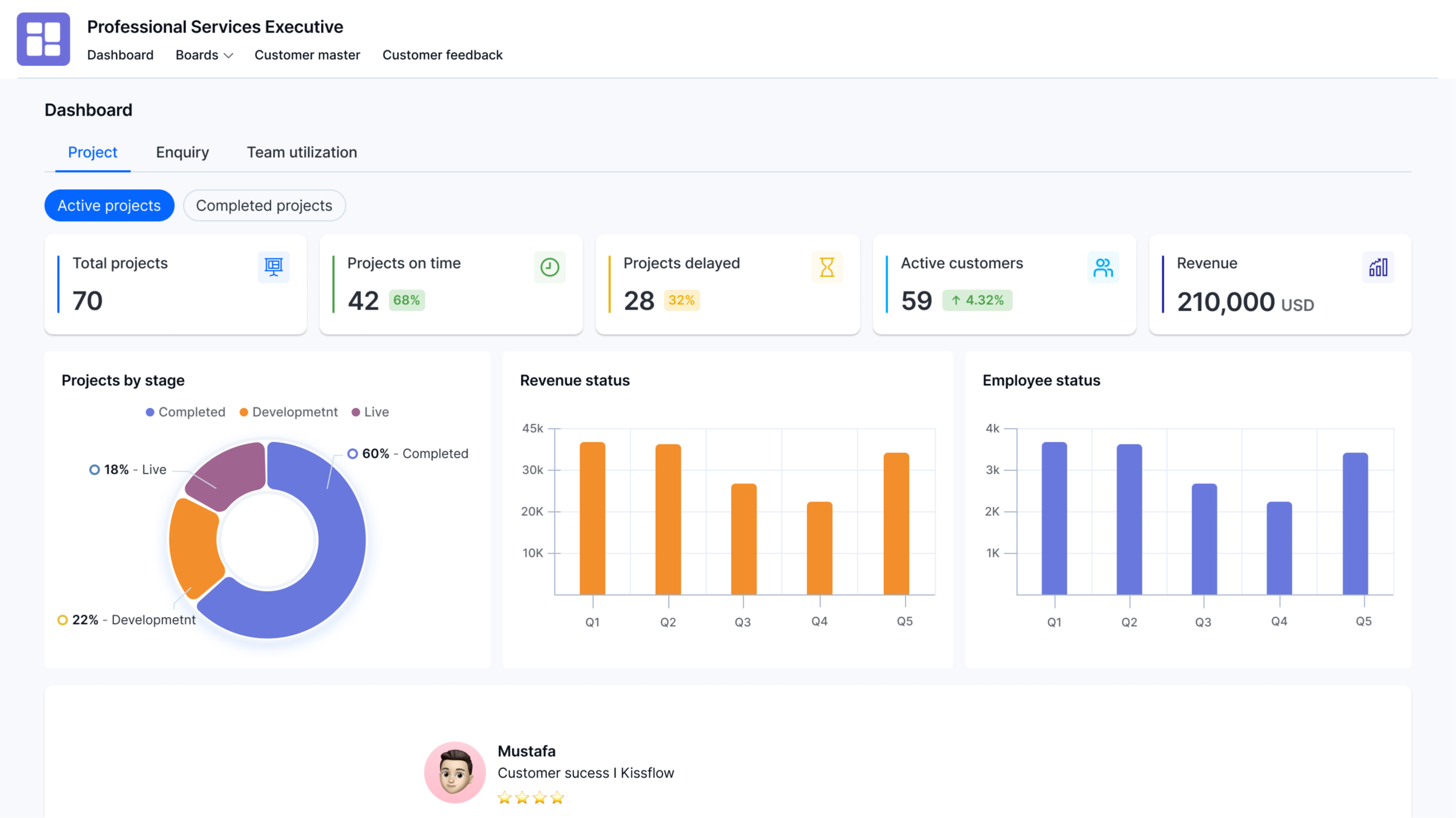
Professional Services Executive Dashboard
By Kissflow
Organize and monitor customer enquiries, and keep track of projects and tasks.
Free
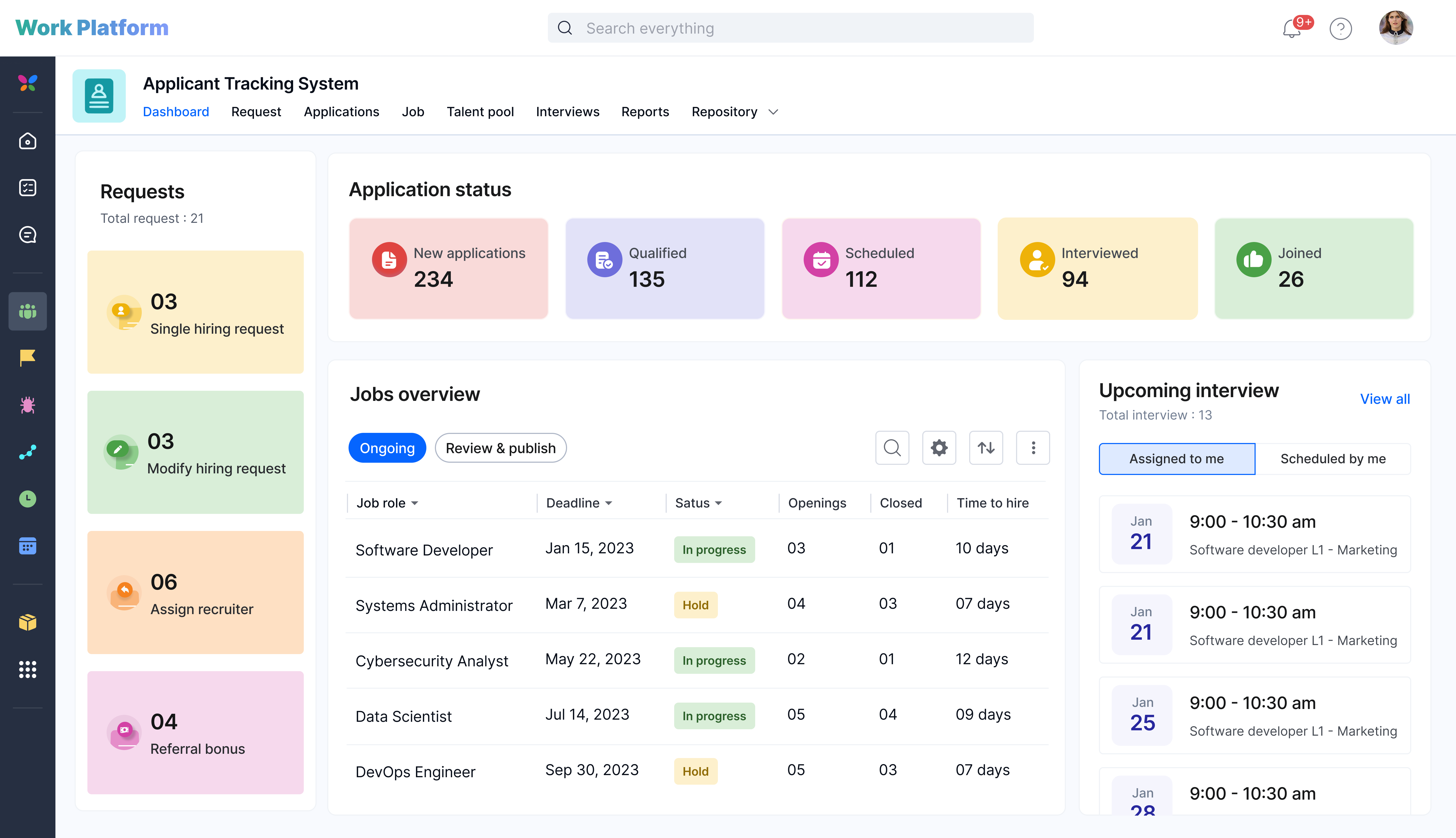
Applicant Tracking System
By Kissflow
Streamline candidate applications and hire the right people with this app.
Paid
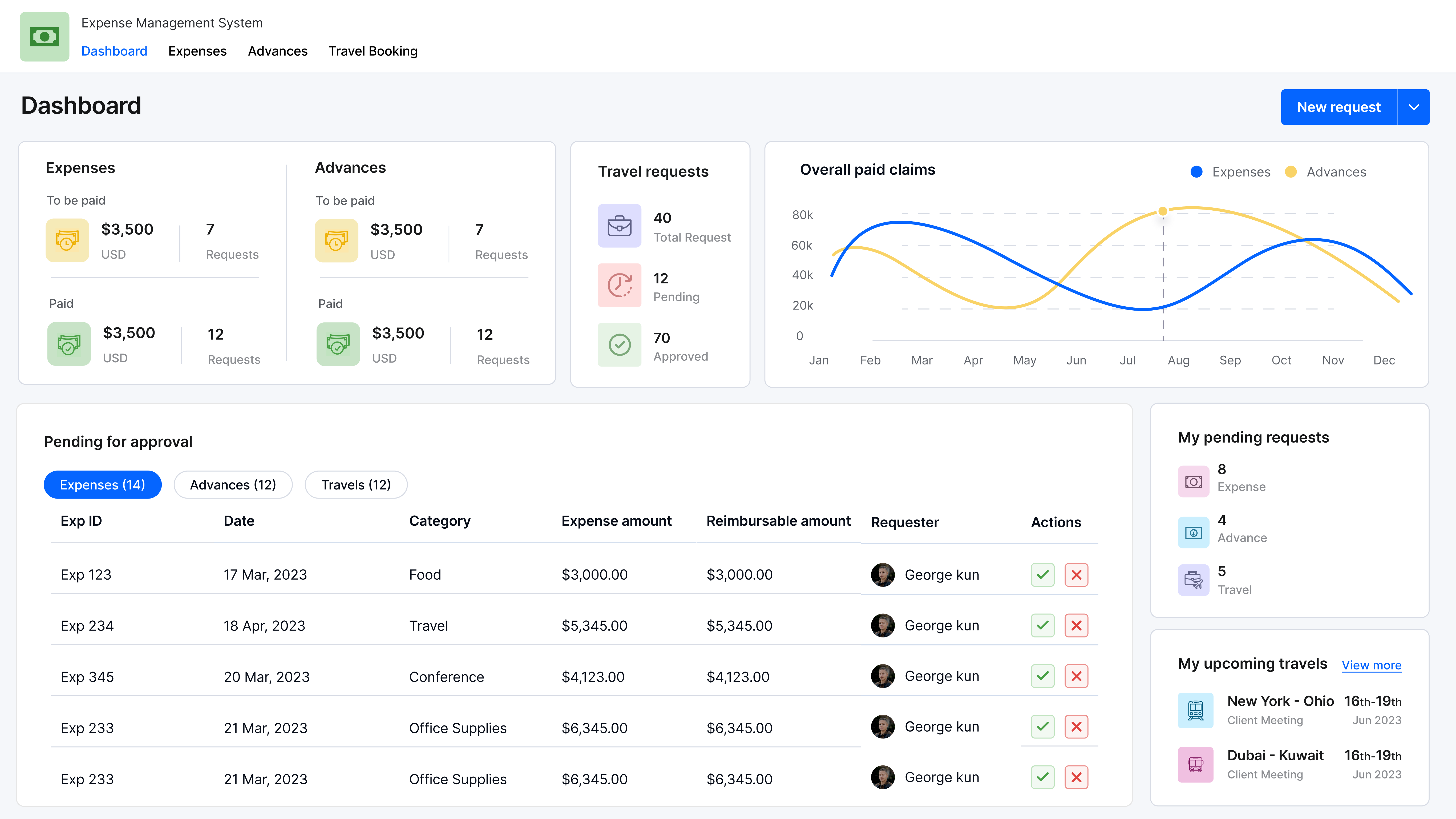
Expense and Travel Management
By Kissflow
Automate reimbursement claims and manage expenses with this app.
Paid
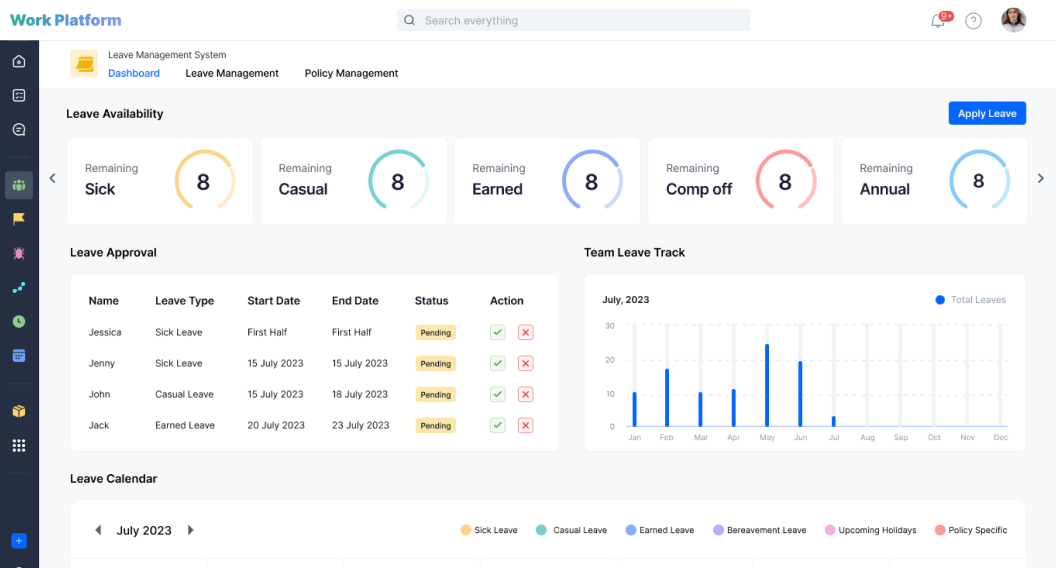
Leave Management
By Kissflow
Apply, track, and manage leave requests aligned with your company’s policy.
Paid
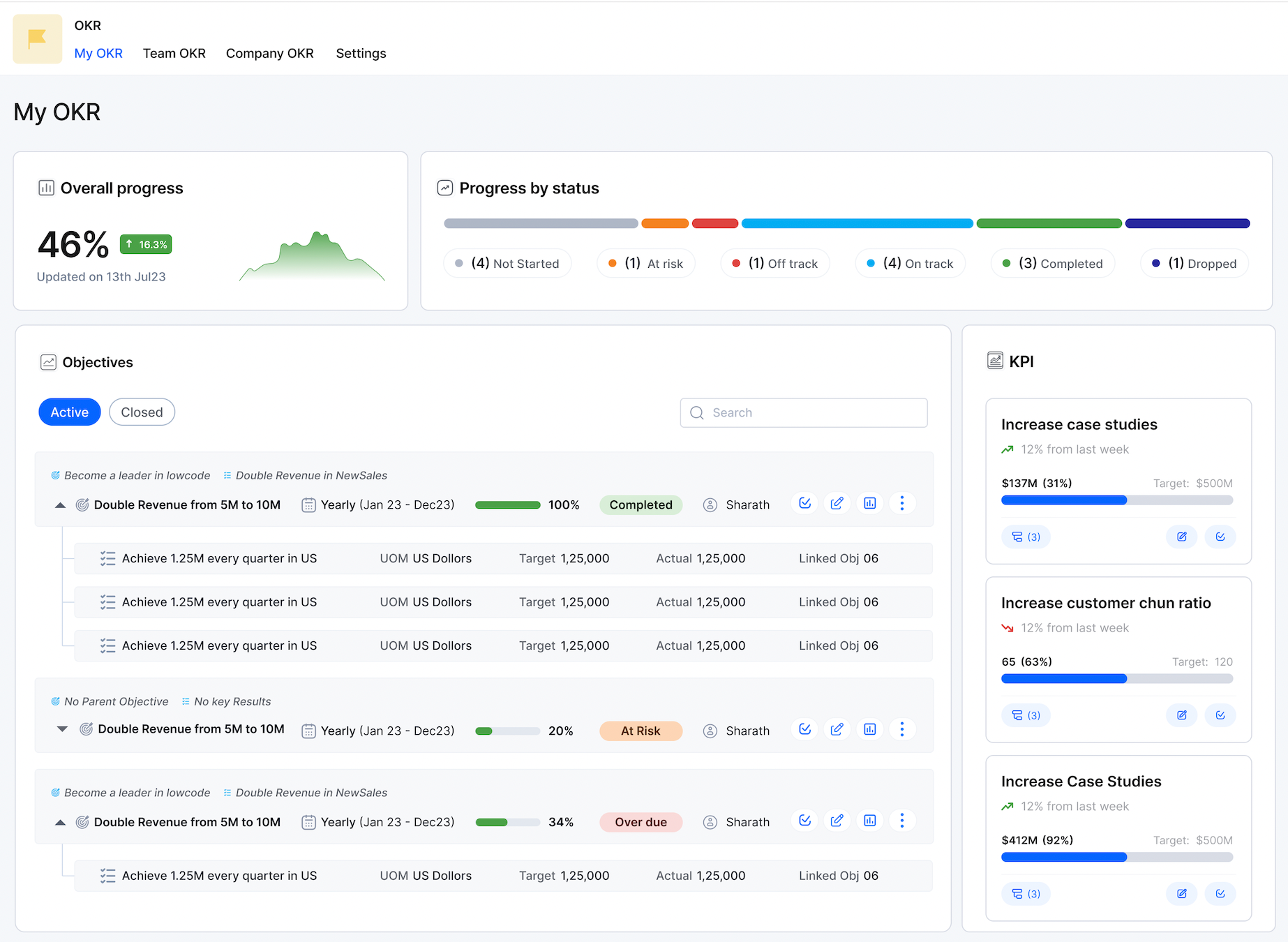
OKR App
By Kissflow
Define, track, and align goals for individuals, teams, and the company
Paid
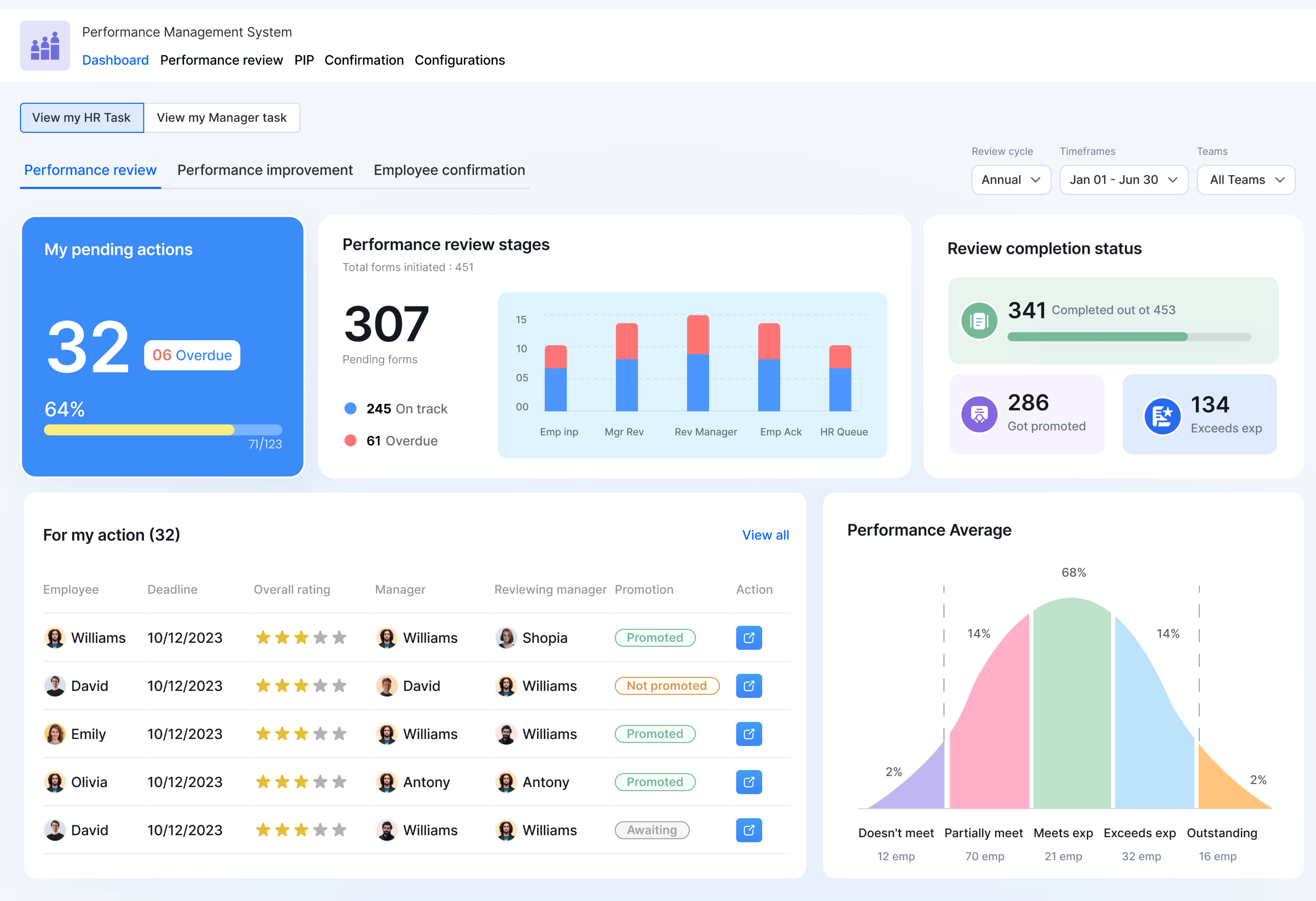
Performance Management System
By Kissflow
Measure and track employee performance with this app.
Paid
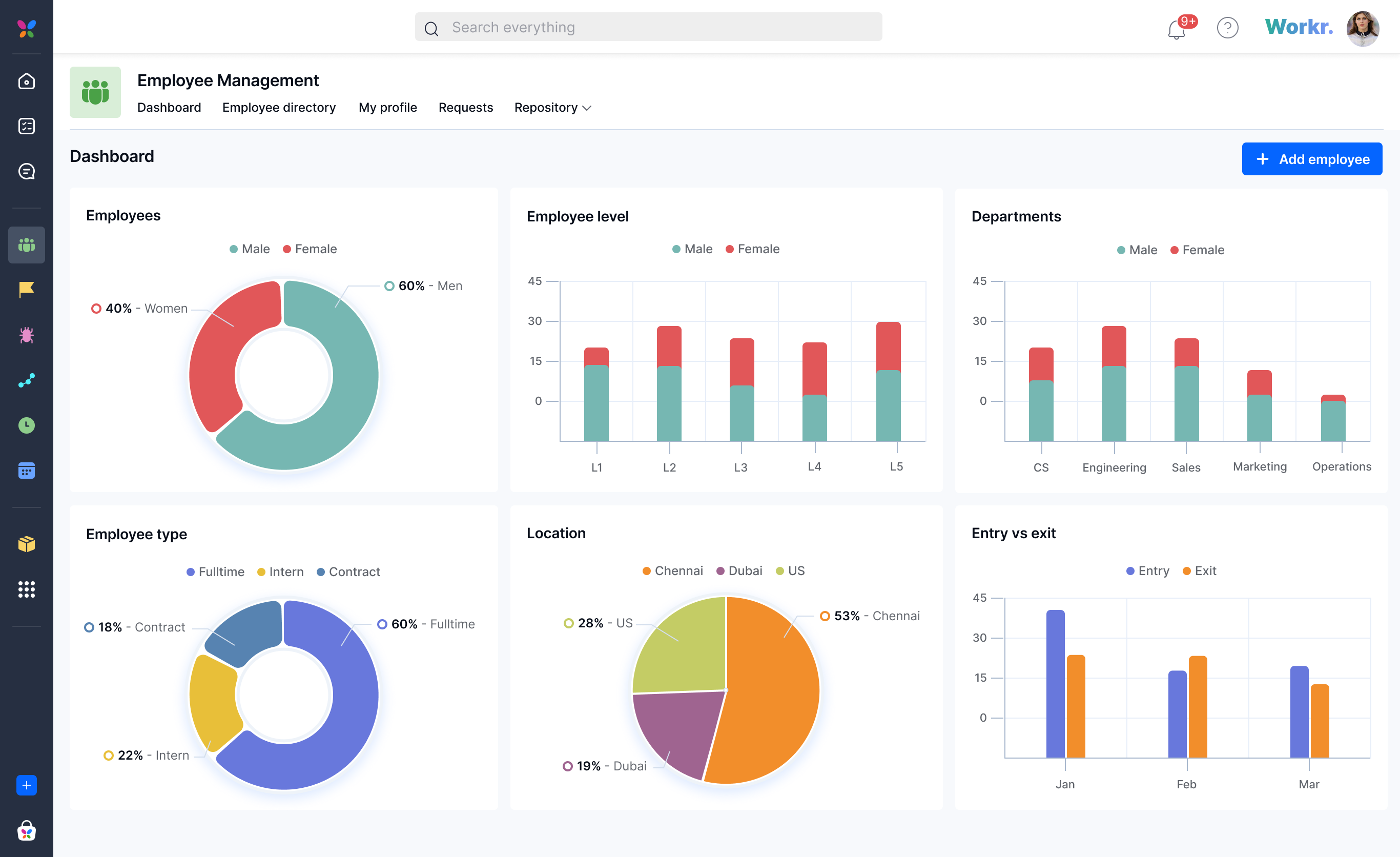
Employee Management
By Kissflow
Streamline and automate HR operations from employee onboarding to offboarding.
Free
No items found
Accelerate and scale app development with Kissflow
Customize with pre-built templates
Build custom low-code apps quickly with pre-built templates.
Tackle internal app backlogs
Implement strategies to clear your internal application backlog quickly.
Join enterprises that trust Kissflow
Enterprises use our low-code platform to streamline app development.
Didn’t find what you're looking for?
Let us know what we can build for you
